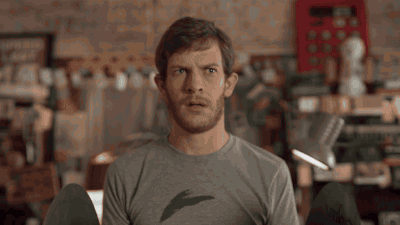 “All that exists is God’s gift to man, and it all exists to make God known to man, to make man’s life communion with God…God blesses everything He creates, and, in biblical language, this means that He makes all creation the sign and means of His presence and wisdom, love and revelation.” -Alexander Schmemann, from For the Life of the World
“All that exists is God’s gift to man, and it all exists to make God known to man, to make man’s life communion with God…God blesses everything He creates, and, in biblical language, this means that He makes all creation the sign and means of His presence and wisdom, love and revelation.” -Alexander Schmemann, from For the Life of the World
In Episode 1 of For the Life of the World, a new series from the Acton Institute, Evan Koons discovers the concept of oikonomia, or, “God’s plan for his whole household of creation,” realizing that the more specific areas and “modes of operation” that God has designed us to work within (families, businesses, governments, institutions) are meant to harmonize with each other.
To illustrate the idea, Koons compares God’s economy to music. Pointing to a xylophone, he notes that a xylophone has its own particular mode of operation — its own rules, its own economy. It works differently than, say, a ukulele or a trombone or an upright bass. Yet played together in proper harmony, each of these instruments coordinate their unique patterns and modes of operation to create something unified yet varied, rich and beautiful.
But Koons doesn’t stop here, eventually moving on to ask the even bigger question: “What is the actual song, anyway?”
The answer, we learn, is gift. We were created to be gift-givers, “crafted in God’s own image, with his own breath, crowned with glory and honor.” And “in that same abundance,” Koons continues, “he blessed us, and he said go, explore my world. Unwrap the gift of my creation. Bless the world with your own gifts.”
The rest of the series wrestles with how sin has complicated all of this, but also how through Christ — who offered himself as a gift — we can offer our service back to God in all that we do: in our work and creative service, through our families, in our governments, and even by simply beholding God’s majesty and creation.
“All is gift,” as he concludes at the end of Episode 1, across all of our actions and throughout each of our economies:
For all our work in this world is made of stuff of the earth — our families, our labor, our governments and charities and schools and art forms — all of it takes place here below, but all of it is pointed toward heaven. All of it is in a sense holy. Imagine if all of us offered our work for the good of the cities around us. How might we be able to change those cities? What would it look like if we only understood that our humble work is a heavenward offering? What would our city of exile look like then?
This week at the FLOW blog, Koons adds yet more to the discussion, offering four additional reminders of how “all creation sings of God’s presence.” I encourage you to read the entire post, but his final point — “My ‘bootstraps’ are not my own” — is particularly striking, challenging the narrow individualism that far too often dominates our thinking:
To make something out of our lives, to find purpose and meaning, we’re often told we must “pick ourselves up by our bootstraps and get to work.” When I put on my “All is Gift” glasses, I can’t help but realize that even my proverbial “bootstraps” are a gift.
And what are those proverbial bootstraps, you may be asking? They are the gifts of my pulse, my parents, my geographic place. My bootstraps are the gifts of teachers and friends who encourage my growth. My bootstraps are the gifts of God and of the strangers he places in my life. These gift-givers had faith that God would use the talents implanted in my life. They gave me a chance to live out those talents. Thank you, Bob, Matt, and Cort. A life of “All is Gift” has no room for the “self-made” man or woman. We are all edified by the gifts of God and by his gifts reflected in others. To paraphrase Sir Isaac Newton, we are standing on the shoulders of giants. “All is gift” recognizes and radiates this truth. Know it or not, we are always fashioning bootstraps for someone else.
Read the rest of Koons’ post here. Purchase the series here.
For forthcoming articles and resources along these lines, follow For the Life of the World on Facebook and Twitter.
[product sku=”1440”]


